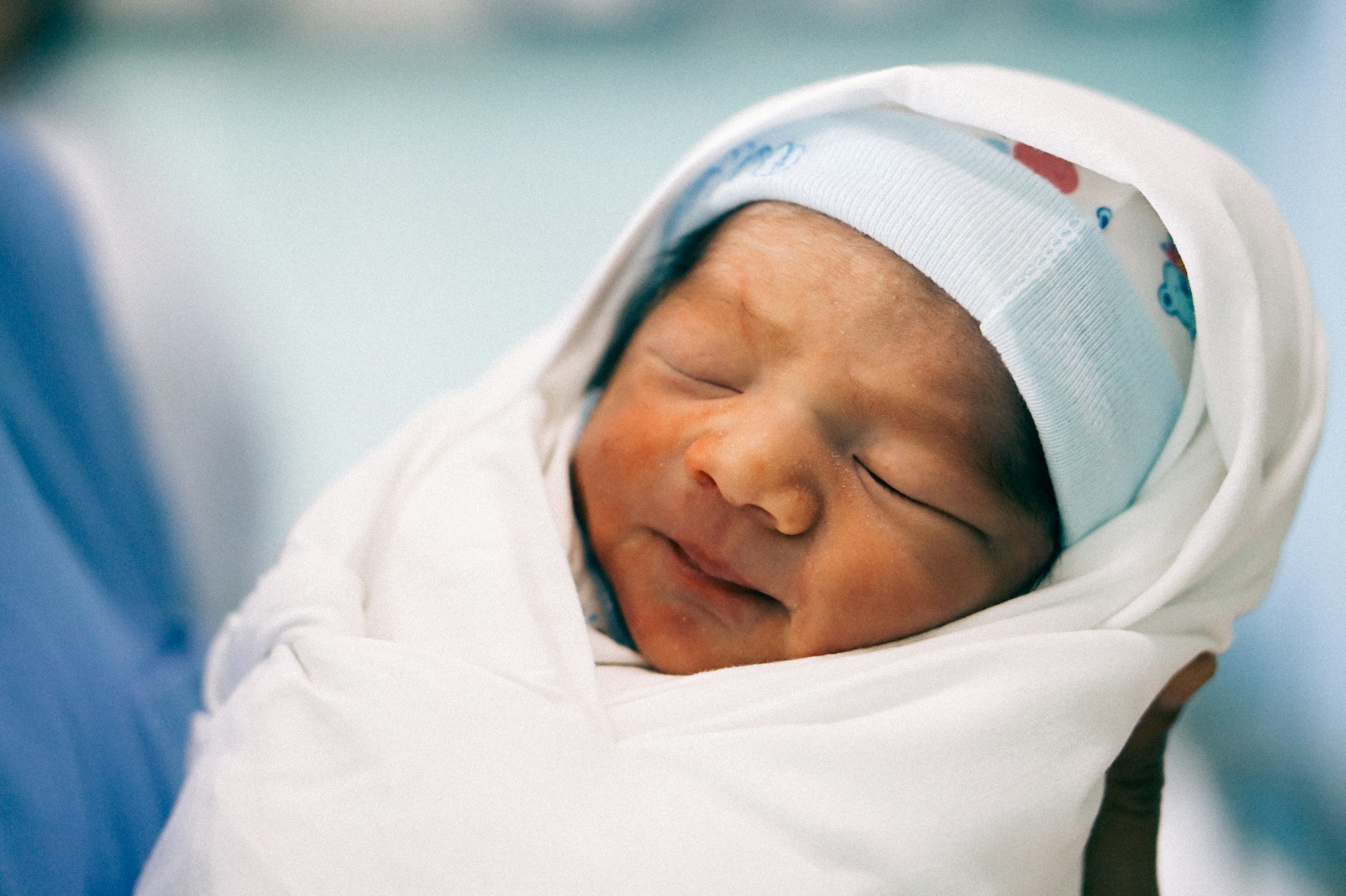When to take your baby to the hospital
When to take your baby to the hospital
Understanding emergency room visits for your newborn
Understanding emergency room visits for your newborn

Dahlia Rimmon, RDN
Content Writer

Dr. Marcy Borieux
Pediatrician



When should you take your newborn to the emergency room?
Fever: Fevers in newborns are considered an emergency. If your baby has a fever, take them to the emergency room immediately.
Infection: Newborns should receive medical care if there is a possible infection. Minor infections, like pink eye, can be managed by a pediatrician, but most others require evaluation in the emergency room.
Vomiting: Small volumes of vomiting, like spit-up, may be a result of infant reflux. If your baby experiences large amounts of vomiting (such as projectile vomiting), if it contains blood or bile, or is accompanied by signs of pain or discomfort, fever, lethargy, irritability, or poor feeding, seek immediate medical attention and take them to the emergency room.
Lethargy or poor alertness: If your baby is lethargic, unusually sleepy, or less alert than normal, take your baby to the emergency room.
Poor appetite: During the first week, your baby is learning essential feeding skills like latching, sucking, and coordinating their breathing while feeding. It’s normal for them to eat smaller amounts while in this learning phase. Over the next few weeks, their appetite should gradually improve, and they should regain their birth weight. If there’s a sudden or significant drop in your baby’s appetite, seek immediate medical attention with your local or Summer Health pediatrician to determine if they should be seen in the emergency room.
Fewer wet diapers: If your baby has fewer wet diapers than normal, it could be a sign of dehydration, especially if they have associated symptoms like lethargy or irritability. Seek immediate medical attention and bring your baby to the emergency room.
Breathing issues: Newborns can have nasal congestion from residual fluid from the birthing process. They can also have noisy breathing due to their immature anatomy. However, unusual breathing patterns are a concern and require immediate medical attention. Signs such as rapid breathing that makes the rib cage and stomach move like a seesaw, flaring nostrils, long pauses in breathing (lasting more than 10–20 seconds), or blue discoloration of the skin (except for the hands, feet, and around the mouth) indicate the need for an emergency room visit.
Injuries: If your baby experiences a major injury, such as a bump or fall, take them to the emergency room for immediate evaluation.
What can you do before going to the emergency room?
If your baby has concerning symptoms but otherwise looks well, contact your local or Summer Health pediatrician for guidance. If your baby appears unwell or has any breathing difficulties, go directly to your nearest emergency room for immediate care.
Important items to keep at home
Infant nasal saline drops
Nasal suction
Vaseline or Aquaphor
Humidifier
Infant Tylenol (contact your pediatrician before administering any medication)
When should you take your newborn to the emergency room?
Fever: Fevers in newborns are considered an emergency. If your baby has a fever, take them to the emergency room immediately.
Infection: Newborns should receive medical care if there is a possible infection. Minor infections, like pink eye, can be managed by a pediatrician, but most others require evaluation in the emergency room.
Vomiting: Small volumes of vomiting, like spit-up, may be a result of infant reflux. If your baby experiences large amounts of vomiting (such as projectile vomiting), if it contains blood or bile, or is accompanied by signs of pain or discomfort, fever, lethargy, irritability, or poor feeding, seek immediate medical attention and take them to the emergency room.
Lethargy or poor alertness: If your baby is lethargic, unusually sleepy, or less alert than normal, take your baby to the emergency room.
Poor appetite: During the first week, your baby is learning essential feeding skills like latching, sucking, and coordinating their breathing while feeding. It’s normal for them to eat smaller amounts while in this learning phase. Over the next few weeks, their appetite should gradually improve, and they should regain their birth weight. If there’s a sudden or significant drop in your baby’s appetite, seek immediate medical attention with your local or Summer Health pediatrician to determine if they should be seen in the emergency room.
Fewer wet diapers: If your baby has fewer wet diapers than normal, it could be a sign of dehydration, especially if they have associated symptoms like lethargy or irritability. Seek immediate medical attention and bring your baby to the emergency room.
Breathing issues: Newborns can have nasal congestion from residual fluid from the birthing process. They can also have noisy breathing due to their immature anatomy. However, unusual breathing patterns are a concern and require immediate medical attention. Signs such as rapid breathing that makes the rib cage and stomach move like a seesaw, flaring nostrils, long pauses in breathing (lasting more than 10–20 seconds), or blue discoloration of the skin (except for the hands, feet, and around the mouth) indicate the need for an emergency room visit.
Injuries: If your baby experiences a major injury, such as a bump or fall, take them to the emergency room for immediate evaluation.
What can you do before going to the emergency room?
If your baby has concerning symptoms but otherwise looks well, contact your local or Summer Health pediatrician for guidance. If your baby appears unwell or has any breathing difficulties, go directly to your nearest emergency room for immediate care.
Important items to keep at home
Infant nasal saline drops
Nasal suction
Vaseline or Aquaphor
Humidifier
Infant Tylenol (contact your pediatrician before administering any medication)
Summer Health offers fast and reliable pediatric urgent care through online doctors, all via text. Whether you’re worried about your baby's fever, rashes, or other children's health concerns, we provide expert advice and support anytime, right from your phone.

Never miss a post!
Sign up for our newsletter to receive articles and guides directly to your inbox!


















